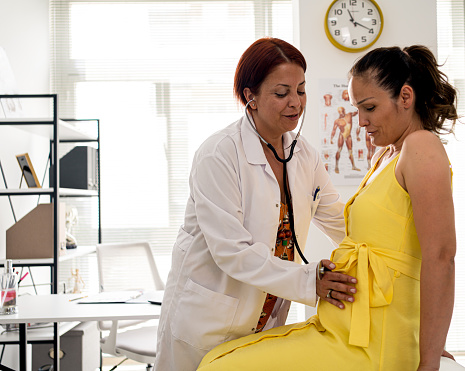
Obstetrics and gynaecology are two disciplines that deal with the female reproductive system. While obstetrics deals with pregnancy and the procedures and complications that come with it, gynaecology treats women who are not pregnant. Obstetrics thus deals with the pregnant mother’s well-being as well as the delivery and healthy outcome. Obstetricians collaborate closely with pediatricians and neonatologists to care for newborn babies and reduce the risk of mortality and disease. Click here if you are keen to study bachelor of obstetrics in Ireland.
Obstetricians specialize in medical care during pregnancy and childbirth. You may wish to consult with a private obstetrician throughout your pregnancy. If you plan to give birth in a public hospital or birth center, you may need to see an obstetrician only if there is a medical need or complication.
Gynecologists’ and obstetricians both care for women’s health, with obstetricians in particular caring for pregnant women. They carry out the following procedures and functions:

- Normal delivery and essential assisting actions Obstetricians are responsible for monitoring and assisting normal delivery in a woman during labor in collaboration with midwives.
- Their duties include facilitating delivery by performing episiotomy, which involves strategically cutting the pregnant mother’s perineum to enlarge the birth canal.
- In order to reduce maternal fatigue and fetal distress, prolonged labor may require assistance to speed up the process (rising heart rate and possible brain damage to the baby). This involves the use of techniques such as forceps delivery and vacuum assisted delivery.
- Caesarean (or C) section is a surgical procedure that removes the baby from the mother’s womb to reduce complications during labor. These complications, in turn, may result in the newborn’s death or injury unless the delivery is rushed with a C section.
- Ectopic pregnancy diagnosis and treatment Ectopic pregnancy occurs when the fertilized ovum implants outside of the womb. It is commonly implanted in the fallopian tubes.
- As the fetus grows in the tube, there is a risk of the tubes rupturing, which could be fatal. The obstetrician detects and terminates such pregnancies before they cause serious harm.
- To prevent miscarriages in some women who have had previous miscarriages, a cervical cerclage operation involving the placement of sutures around the cervix is performed.
- If the baby is not in its birthing position with the head down, the obstetrician manipulates it from outside to get it there. This is known as External cephalic version (ECV).
- Diagnosis of congenital abnormalities while the baby is still in the womb, including Down syndrome detection using ultrasound and techniques such as chorionic villus sampling.
- Contraception advice and insertion of an intrauterine contraceptive device (IUCD).
- Ultrasound is used to detect pregnancy and fetal well-being.
- Abortion, miscarriage, and procedures such as dilatation and curettage (D & C) or dilatation and evacuation (D & E) detection and management (D & E).

You probably won’t need an obstetrician if you have an uncomplicated birth at a public hospital as a public patient. However, an obstetrician will be on hand to handle any complications or emergencies.
In a private hospital, your obstetrician may visit you during labor, but midwives will mostly care for you. Your obstetrician will manage any complications and will be present at the birth (or second stage of labor).